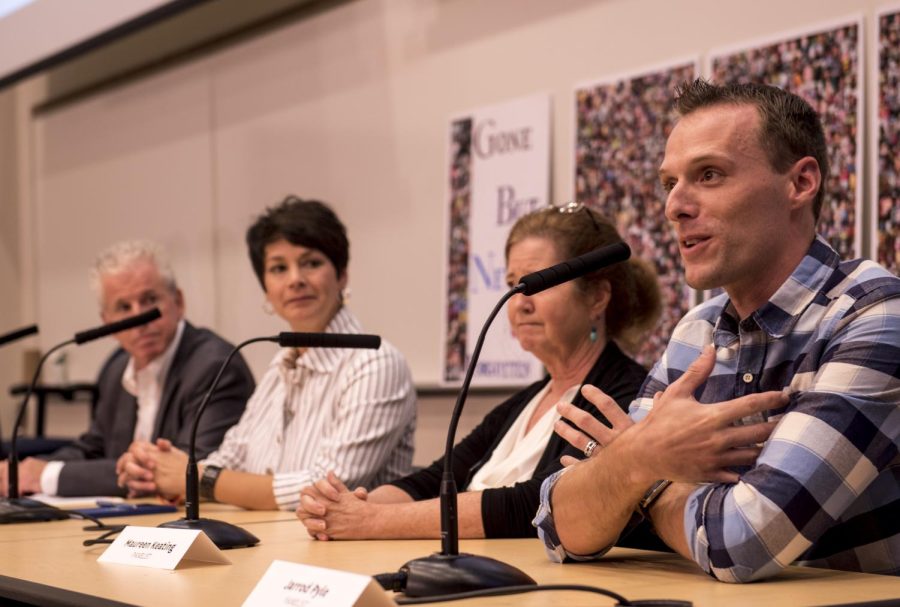JMC educates community through heroin conversation
October 20, 2016
To combat the growing heroin epidemic in the Northeast Ohio community, Kent State’s School of Journalism and Mass Communication and Student Voice Team put together a panel to help educate the university and local community.
“Heroin has always been a part of our society but it was more hidden before,” said Maureen Keating, a chemical dependency counselor at the University Health Services.
An individual dies of an opioid overdose every two and a half hours in Ohio. In 2014, Ohio was second in the nation for drug overdose.
The conversation started with the focus on the heroin problem in the community, but eventually turned to the national epidemic.
For the majority of the night, panel attendees shared their personal stories of the detrimental effects of heroin, cocaine and prescription drugs addictions, with the panelist guiding the conversion.
Student attendees spoke openly about hard drug use in both their high school and college experiences. A repeatedly discussed theme was the roadway to addiction, with prescription pills being highlighted as a gateway to opioid addiction.
Recovering addict Jarrod Pyle, one of the panelists, as well as a treatment counselor for the Oriana House, said his addiction began in his friend’s parent’s medicine cabinet.
“This disease is so cunning, so powerful, it could happen to anyone,” Pyle said.
Keating spoke about the chemical change that occurs in users on a psychological level.
Keating also emphasized how many users turn to substances to deal with other issues in their lives or to feel close to other people.
“I’m a different person when I’m using; I’m an irrational jerk,” Pyle said. “When my family told me they didn’t realize I was using, in my head I’m like, ‘You just thought I was a jerk?’”
Pyle said to look for signs in a person, with one of the biggest being withdrawal. He went on to say that users know they are doing something wrong, but try and hide it.
Involvement and support for addicts was stressed by all the panelists when audience members asked how they could help.
Panelist Greg McNeil, a father who lost his son to heroin addiction and the founder of Cover2 Resources, warned that support can become enabling if people aren’t careful.
McNeil cited that his family’s biggest mistake was ignoring behavior that showed his son going down a dark path — viewing relapse as failure and not a part of the struggle to recovery.
At the end of the two-hour discussion, an announcement was made regarding a candlelight vigil to be held on Tuesday at the K on Riseman Plaza at 7 p.m.
Students are encouraged to write messages of support to help the community heal, with chalking starting at noon.
Contact Ian Gillan at [email protected].












